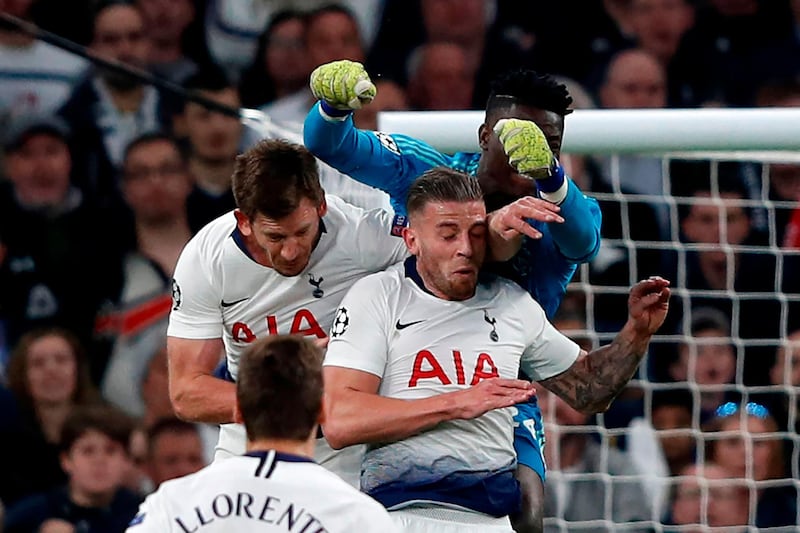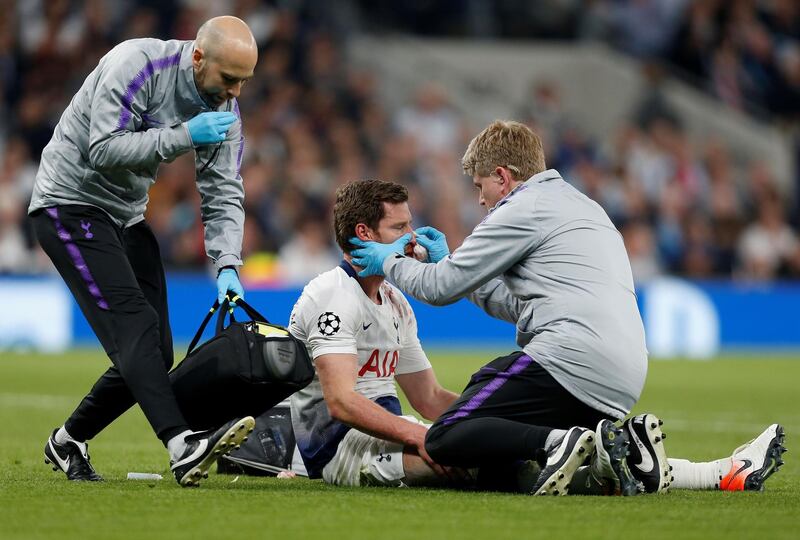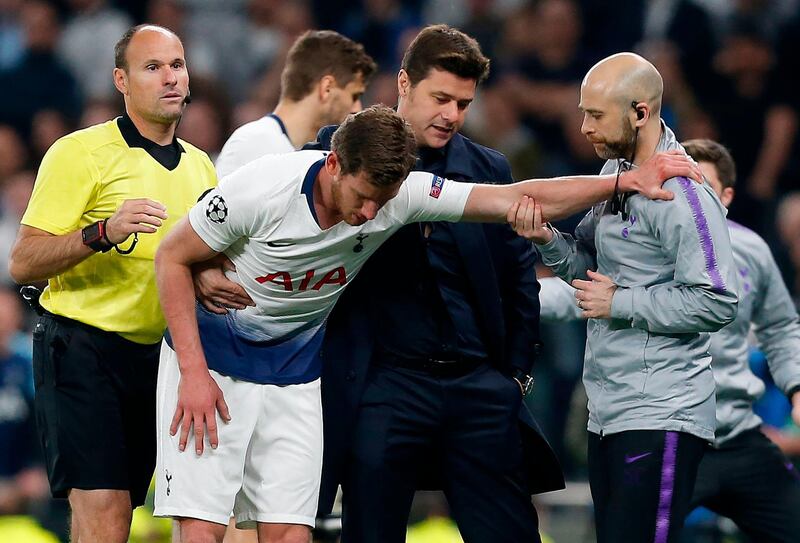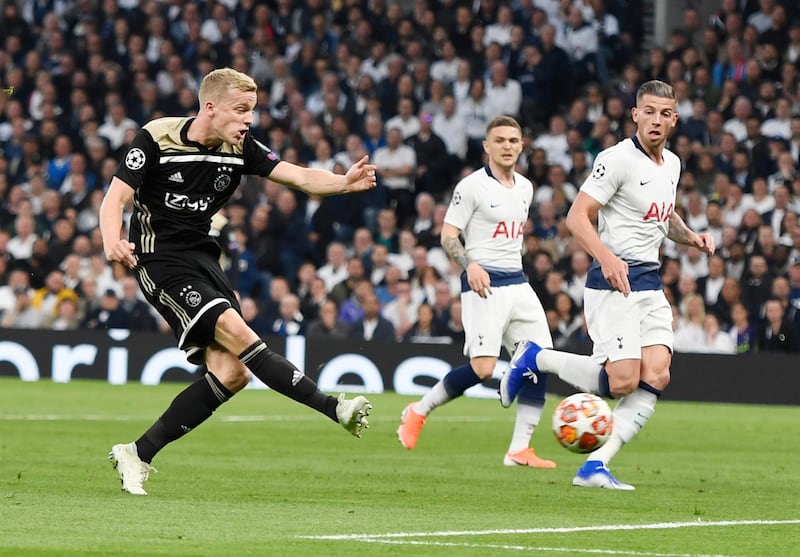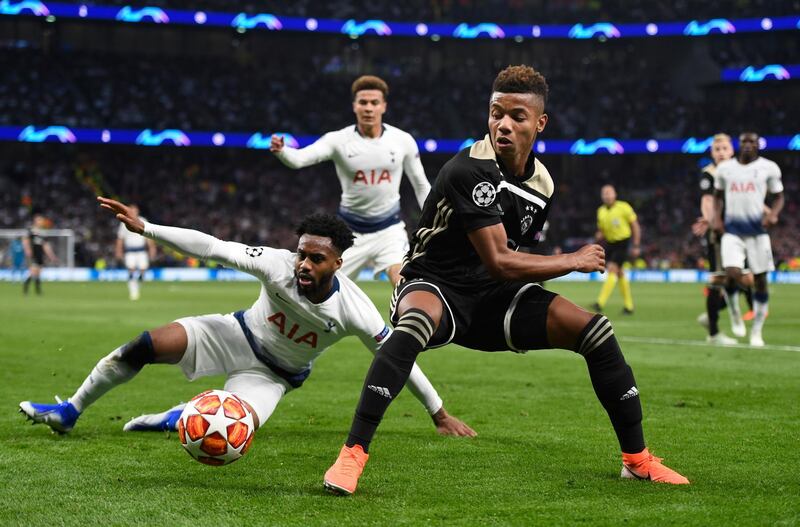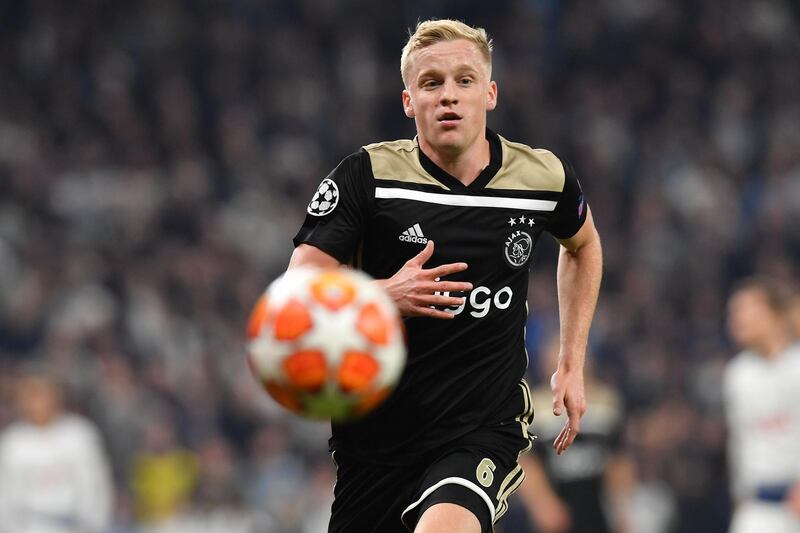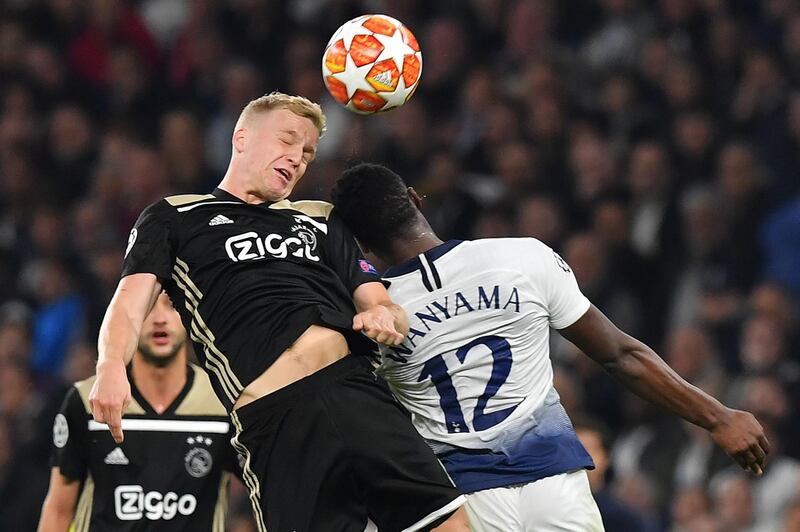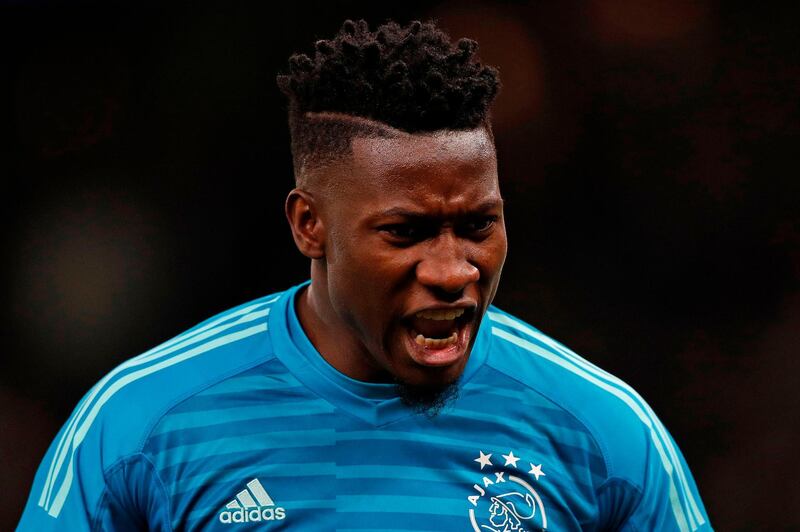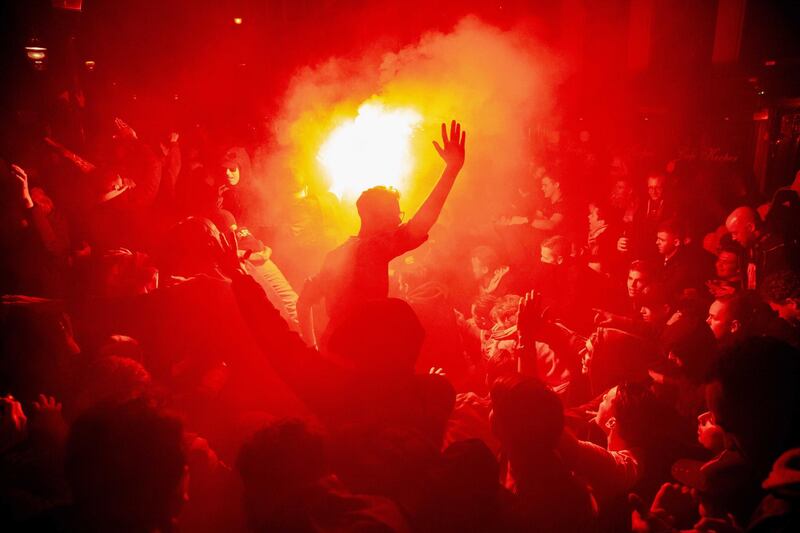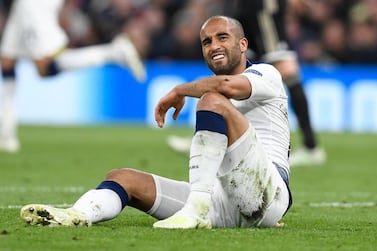The disturbing scenes that saw Tottenham Hotspur defender Jan Vertonghen removed from the field after suffering the ill effects of a head injury has once again called into question football's relationship to concussion protocols, and whether they are fit for purpose.
Vertonghen suffered a nasty gash to his nose following a clash of heads with teammate Toby Alderweireld that left Vertonghen prone on the pitch. You didn't have to be pitchside to see it was a bad one. The reaction of the Ajax players said everything.
On its website Uefa states that, in the event of a suspected concussion, the referee can stop the game for up to three minutes, to allow the injured player to be assessed by the team doctor. A player will only be allowed to continue playing on specific confirmation by the team doctor to the referee of the player's fitness to carry on.
After more than five minutes of treatment, almost twice as long as Uefa recommends, the Tottenham medical team were satisfied Vertonghen had passed concussion protocols.
Before returning to the field referee Antonio Mateu Lahoz demanded that the player be double-checked, which he was, and he was allowed to return before being substituted seconds later looking visibly unwell. Vertonghen had to be held upright by his manager, Mauricio Pochettino, retching as he was helped to the dressing room by medical staff.
Thankfully, Vertonghen was able to walk away from the new Tottenham Hotspur Stadium, telling reporters afterwards that he was OK and that there had been no concussion.
Therein lies the problem, though. Concussion is notoriously difficult to diagnose. The symptoms may be hidden and also be delayed in their presentation. Given the magnitude of the occasion - a Champions League semi-final in front of 62,000 fans - Vertonghen may not have been completely honest about how he was feeling, either to the Spurs medical staff or to reporters.
Vertonghen's injury occurred in the 32nd minute with Tottenham trailing to a Donny van de Beek goal that gave Ajax a 1-0 win in the first leg of this Champions League semi-final. Vertonghen stated there was no concussion and did not, in the Spurs medical team's opinion, fail any tests which would have prevented him from continuing. But the distressing scenes in which he left the pitch clearly calls for a rethink of how concussion injuries are assessed.
No one is questioning that Tottenham did not follow approved guidelines, or that their only priority was the player's welfare. But, clearly, Vertonghen was not well enough to continue after suffering a sickening injury.
Brain injury charity Headway has called for football's authorities to introduce "temporary concussion substitutions" to allow medical staff to make proper assessments of injured players.
Luke Griggs, spokesperson for Headway, said: "Assessing a player for three minutes - or even five, as was the case with Jan Vertonghen - does not allow for medical staff to make a reliable diagnosis, particularly when this is conducted on the pitch under the gaze of tens of thousands of fans eager for the game to resume."
Others have suggested turning to technology. SyncThink’s EYE-SYNC, a device that uses virtual reality to conduct an eye movement assessment on a person who may have suffered a concussive blow, takes just 60 seconds to accurately diagnose any issue.
"I've spoken to 30 or so athletes that have used this technology on the sideline in an NFL game or a soccer game, and they all spoke very highly of it," Taylor Twellman, a former USA international and an analyst for ESPN, who had his career cut short due to repeated concussive blows, told football website Goal.com.
An independent doctor to make a risk assessment at a medical facility inside the arena or stadium is another option. For while medical staff at clubs have a duty of care to their patients, they are potentially compromised by the interest of their employers. An independent referee's decision would be final.
"The pressure on club medical staff is enormous and unfair, particularly in such high-stakes games such as a Champions League semi-final," Griggs added.
